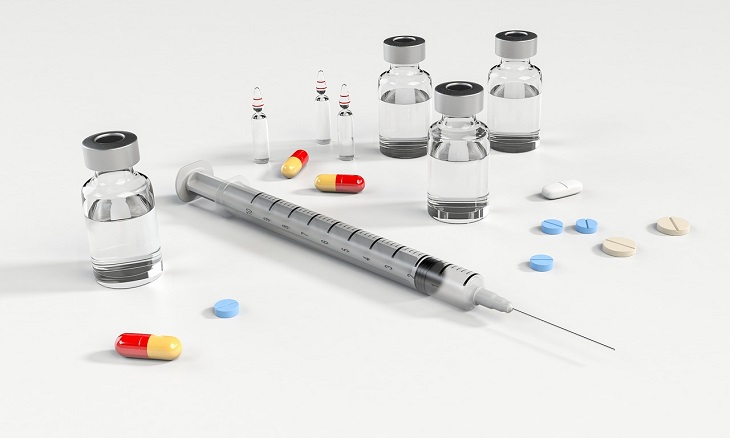The human body is a well-oiled machine. All systems run symbiotically to help maintain optimal levels of health throughout a person’s life. There are certain things the body needs to be given to help keep those processes running up to par, such as vitamins and minerals, while other substances are produced naturally. One such hormone that the body creates all on its own is dehydroepiandrosterone, or DHEA.
This hormone is produced in the adrenal glands and lends a hand in the production of other hormones such as testosterone and estrogen. Natural levels of DHEA tend to decrease as the body ages – a factor that is thought to play a role in the development of certain chronic age-related ailments such as heart disease and depression. The depletion of naturally occurring DHEA starts around age 30 and continues throughout the rest of adulthood.
Is DHEA a steroid?
DHEA is a steroid that acts as a precursor for hormone production. It is mostly produced by cholesterol, but can be created by the ovaries and testes in small amounts. Since it is the highest circulating steroid within the human body, it holds power over the production of various other important hormones.
What does DHEA do in the body?
As mentioned above, DHEA is responsible for helping the body to create different hormones. The brain is in control of the production of DHEA. A negative feedback message is sent to the brain when levels of DHEA begin to drop. When this occurs, the brain can essentially flip the switch back on so that DHEA can be produced in larger amounts when needed. When the levels return to where they need to be, that negative feedback message is turned off.
The levels of DHEA within the body control the levels of hormones; thus, it is used to help avoid hormonal imbalances that could lead to a variety of health problems. Many conditions can lead to disrupted hormone levels, and DHEA is the precursor designed to remedy that.

What are the symptoms of low DHEA?
Since DHEA is an important part of hormone regulation and production, an imbalance can lead to various health conditions and issues. DHEA levels have the potential to be both too high and too low.
When DHEA levels are too high, symptoms can vary, and are generally worse in women. These symptoms include:
- Lack of menstruation
- Overgrowth of body and facial hair
- Acne
- Hair loss
- Trouble conceiving
- Deepening of the voice
- Male pattern baldness
- Adam’s apple
High levels of DHEA can also affect children, and may lead to the early development of pubic and underarm hair.
When DHEA levels are low, the resulting conditions and symptoms are considered more serious. Since DHEA levels decrease with age, several of the conditions associated with low DHEA levels can be seen as age-related. Illnesses that can develop due to low DHEA levels include:
- Diabetes
- Dementia
- Erectile dysfunction
- Osteoporosis
- Lupus
- AIDS
- Chronic fatigue syndrome
If levels of DHEA are decreasing irregularly, it could mean that the body is experiencing other ailments, such as:
- Damage to the adrenal glands and their function
- Addison’s disease
- Hypopituitarism
DHEA is a vital component when it comes to hormone health, and unbalanced levels can lead to serious health conditions if not addressed promptly.
What are the benefits of taking DHEA?
There is a lot of research surrounding DHEA and how increasing levels can attribute to overall health. Although DHEA is a naturally occurring hormone precursor, it can also be taken as a form of supplementation when levels begin to go down.
Some research has found that since lowered bone density is associated with low levels of DHEA, supplementation can lead to an improvement in bone density, especially as people age. It has been found to have a more effective result on women than it does on men, however.
Research has also shown that taking DHEA as a supplement can help increase strength and improve physical performance for older adults who may suffer from adrenal gland dysfunction. Studies have been contradictory when it comes to improving muscle mass or performance of people at any age, and most of the research has focused on older adults.
Another condition that DHEA may show promise in treating is depression. Studies have found that those suffering from mental illness without responding to other forms of treatment may find relief from symptoms by supplementing with DHEA. There is other evidence to suggest that too-high levels of DHEA can exacerbate symptoms of depression in middle-aged women, though more research is needed to come to a distinct conclusion.
Since DHEA plays a role in the creation of the male and female sex hormones, it has also been shown to help improve sexual function, libido, and fertility.
Adrenal fatigue or other issues with the proper functioning of the adrenal glands could also benefit from the use of a DHEA supplement. When the adrenal glands are not functioning as they should, people can experience chronic fatigue, weakness, and blood pressure changes. Research has found that taking DHEA as a supplement in those with adrenal insufficiency can lead to an overall improved quality of life for those who suffer from the condition.

How long does DHEA take to work?
Taking DHEA supplements can help improve adrenal insufficiency and lead to a better quality of life. Dosing tends to be around 25–50 mg a day and it has been found to be safe and effective for a period of up to two years. Changes in symptoms are generally experienced within four months of the first dose, but changes can occur in a shorter or longer timeframe, as people response differently to supplementation.
Depending on your current state of health, DHEA may be the right supplement for you. It is always best to speak to your doctor about new supplementation prior to beginning a regimen. Vital RX’s Fitness and Energy Subscription boxes both contain DHEA to help aid in adrenal health and the regulation of hormones for overall wellness.
Featured image by Paweł Czerwiński on Unsplash

